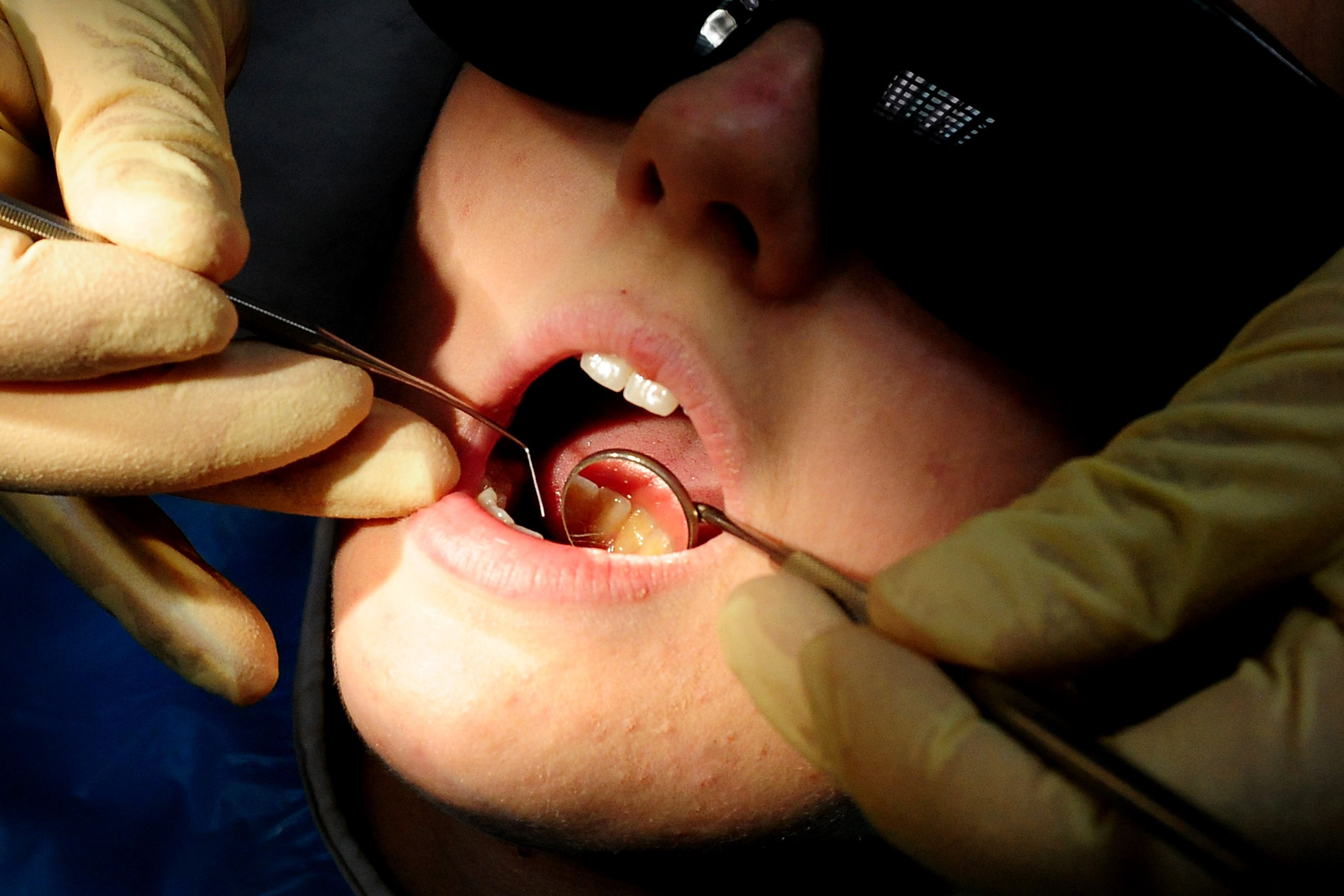Thousands of tooth extractions prevented thanks to sugar tax, say researchers
The soft drinks industry levy may have prevented thousands of children needing to have their teeth pulled out, academics found.

Your support helps us to tell the story
From reproductive rights to climate change to Big Tech, The Independent is on the ground when the story is developing. Whether it's investigating the financials of Elon Musk's pro-Trump PAC or producing our latest documentary, 'The A Word', which shines a light on the American women fighting for reproductive rights, we know how important it is to parse out the facts from the messaging.
At such a critical moment in US history, we need reporters on the ground. Your donation allows us to keep sending journalists to speak to both sides of the story.
The Independent is trusted by Americans across the entire political spectrum. And unlike many other quality news outlets, we choose not to lock Americans out of our reporting and analysis with paywalls. We believe quality journalism should be available to everyone, paid for by those who can afford it.
Your support makes all the difference.The introduction of sugar tax on soft drinks led to a reduction in the number of children who needed rotten teeth removing, according to a study.
The soft drinks industry levy may have prevented thousands of children needing to have their teeth pulled out, academics found.
Researchers, led by academics at the University of Cambridge, wanted to assess the impact of the levy, which was announced in March 2016 and implemented in April 2018.
This study shows that ambitious public health policies such as a tax on sugary drinks can impact on improving child oral health
The tax has led to drinks companies reformulating their drinks to contain less sugar. Failure to do so leads to firms paying a levy per litre of drink.
When the law came into force, the Treasury estimated that more than 50% of manufacturers had already reduced the sugar content of drinks as a result.
The new study, published in the journal BMJ Nutrition, Prevention and Health, saw experts analyse NHS hospital admissions in England for tooth extraction caused by tooth decay.
The team looked at data from 2012, before the tax was introduced, to February 2020.
They found a 12.1% “relative reduction” of in hospital admissions for tooth extractions among children aged up to 18.
They estimated that the reduction equates to an estimated 5,638 hospital admissions being averted each year.
The largest reduction was seen among children aged up to four years old, where academics found a 28.6% reduction.
They also found a 5.5% reduction among those aged five to nine.
But no change was seen among older children.
Co-author David Conway, professor of dental public health at the University of Glasgow, added: “Tooth extractions under general anaesthesia are among the most common reasons for children to be admitted to hospital across the UK.
“This study shows that ambitious public health policies such as a tax on sugary drinks can impact on improving child oral health.”
The British Dental Association (BDA) said the levy should be expanded into other products such as milk-based drinks, biscuits, cakes, sweets, yoghurts and cereals.
“The sugar levy is delivering the goods in the fight against decay, so it’s time to double down,” said BDA chair Eddie Crouch.
“This isn’t about adding to the cost of living.
“When voluntary action has clearly failed, this shows government must force industry’s hand on cutting sugar.”